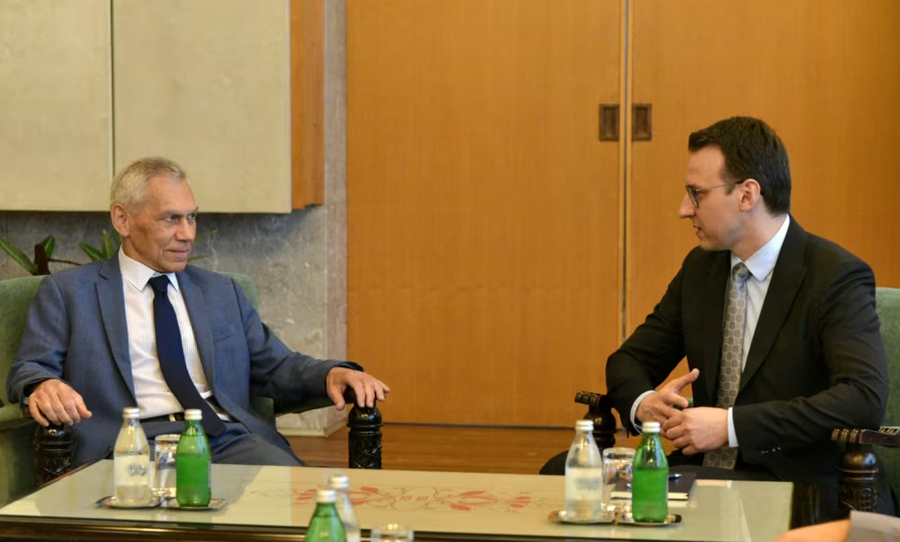
The Director of the Office for Kosovo in the Serbian Government, Petar Petkovic, has spoken with the Russian Ambassador to Belgrade, Aleksandar Bocan-Harchenko, regarding the arrest by the authorities in Kosovo of Igor Popovic.
Petkovic, during the conversation with the Russian ambassador, as announced by his cabinet, "stressed Belgrade's strong concern" due to the arrest of Popovic, who is his assistant in the Office for Kosovo of the Serbian Government.
On July 18, Popovic stayed in Velika Hoca where he participated in the anniversary of the killing of Serbs in the territory of the municipality of Rahovec, where during his speech he called the Kosovo Liberation Army (KLA) a "terrorist organization".
For this reason, he was later arrested by the Kosovo Police at the Brnjak border crossing and the authorities then sentenced him to one month in detention.
According to Petkovic, this is an "arbitrary arrest and decision that is not based on the rule of law, but on political revenge and ethnicity."
"Pristina continues with escalating actions, raising tensions and causing crises on the ground, and with its actions, including the arrest of my assistant Igor Popovic, it is directly devaluing and stifling the dialogue," Petkovic said.
Kosovo and Serbia have been conducting dialogue to normalize relations since 2011. The process is mediated by the European Union.
Serbia, however, counts on Russia's support in international organizations in opposing Kosovo's independence.
Serbian Foreign Minister Marko Djuric also spoke with the Russian ambassador on July 24 about Popovic's arrest in Kosovo.
Officials in Serbia have condemned Popovic's arrest, calling it a "political decision." They are demanding his immediate release, as well as protection for missions operating on the territory of Kosovo.
The acting Minister of Internal Affairs of Kosovo, Xhelal Sveçla, has stated that Kosovo will not tolerate insults and desecration of history and the war led by the KLA.
The KLA was a political-military force that fought for the liberation of Kosovo from Serbian rule in the period 1990-1999.
During the war in Kosovo in 1998/99, more than 13,000 civilians were killed, while thousands more went missing.
Around 1,600 people, mostly Albanians, have not yet been found.
Over the years, Kosovo's justice authorities have charged or convicted several people for war crimes. During the conference, Kurti said that Serbia has yet to apologize for the crimes committed in Kosovo./ REL (A2 Televizion)











